Rev. Barber: “We Must Stand Against Political Violence”
“But I don’t know if the people who have depended on division to build power can shake its stranglehold”.

We all have to stand against political violence. Debates over ideas are one thing, but violence, assassination attempts, and killing innocent bystanders is something else. And it is wrong, no matter what the justification.
We have to give authorities time to do a full investigation of the man who tried to assassinate former president Donald Trump at his rally in Pennsylvania. It’s irresponsible to assume motive by saying he was a registered Republican. And it’s certainly wrong to say he hated Trump because he was for President Joe Biden or he was an agent of Satan sent to kill Trump, who is an instrument of God.
It’s also wrong to toy with conspiracies about the “deep state” orchestrating this kind of violence to cause civil unrest. Right now, the investigators must investigate. And we as a society must refrain from violent words, innuendos, and articulations. The main talking we need to be doing is on our knees before God.
“Deliver us from evil” and “make me an instrument of your peace” have been my prayers. We must pray for those injured, for the family of the deceased victim, for former president Trump, and for a covering over all the other candidates.
In fact, we have to keep the person who died front and center and not minimize the death and lift up a candidate. Because the death of a rally attendee reveals how, whenever we let loose violence, hatred, and bullets, we never have control over who they might destroy. We must pray and work for the day when we lay down our sword and spear, guns and violent language, and live as brothers and sisters.
Some are saying, “Something is wrong, and we need to get back to a time when we knew what being Americans meant.” But we have a history of assassinations. Maybe we don’t need to get back but to go forward, debate issues, and not demean or dehumanize one another.
Regardless of party or position, we all must denounce violence, repent if we have not, and lean into nonviolence. I know what it means to receive death threats and be told you will be killed. But even with the threats, I must denounce violence—period. It is an all-consuming spiral that will destroy us if we don’t.
This is a time for all of us to hear again the need to turn swords into plowshares. We need to hear that the power of life and death is in the tongue. We need to hear that there is a way to speak the truth in love and not make a political opponent a sworn enemy. When Martin Luther King Jr. said George Wallace, the governor of Alabama, had “lips dripping with the words of interposition and nullification,” he told the truth. But he also offered hope and never spoke as though Wallace couldn’t change. He challenged dangerous lies and still loved Wallace. We must hear the teaching of Scripture: “Love your enemies.” “Be not conformed to the pattern of this world but be transformed by the renewing of the mind.”
All I could hear the other day was what Peter said to a violent, untoward generation, filled with the politics of violence when Caesar sought to hurt, harm, and kill opponents: “Repent and you shall be saved.” Turning toward truth and love, both individually and as a society, must be our starting point.
We need to repent of how we have allowed our politics to be about destruction, not dreams that strengthen the foundations of democracy. Public discourse has too often fueled the politics of fear, division, and polarization.
We have allowed the very framework of our public debate to be more about the harshest insults than straightforward conversation about the issues that most impact everyday people, especially the poor, low-wage workers, marginalized neighbors, sick folks, and immigrants—the treatment of whom Jesus said every nation will be judged.
We must refocus beyond the notion of left versus right, where you choose sides and set out to tear down the other side. We must repent and move to state our position that this or that issue is wrong or detrimental in our opinion—or based on data and research or past experience—but without declaring that the person who challenges us is less than human, is a conspirator, is going to destroy the nation.
The truth is that if the nation is weakened or democracy is eroded, it will not be because of one person, but because of the complicit participation of citizens who went along with the destructive attitudes and actions from which we refused to repent—and who thus pushed the collective to an ultimate breaking point.
And we must connect all of these attacks, for instance, from Congresswoman Gabby Giffords to Congressman Steve Scalise to Speaker Nancy Pelosi’s husband, Paul, to Vice President Mike Pence to all the threats President Obama, Representative Alexandra Ocasio-Cortez and others have received, to this most recent assassination attempt against Trump.
We must look deep in our history and in ourselves to tell a better and truer story about what ails us and why it comes to the forefront in certain moments. We cannot be about just one moment. We must repent of what we’ve continued to be.
Every media group that for corporate profit has fed this demonization of neighbors must repent.
Every preacher who has declared that a person or a political candidate is our savior must repent.
Every person who claims our goal is to “go back” to some places in our history, as though violence is a recent occurrence, must reconsider and turn instead toward God’s peace.
We must be true to what we have said on paper and ensure in our practice that fulfilling the preamble of the Constitution is our framework for public dialogue: “We the People of the United States, in Order to form a more perfect Union, establish Justice, insure domestic Tranquility, provide for the common defense, promote the general Welfare, and secure the Blessings of Liberty to ourselves and our Posterity…”
This is why we engage in public life. Truth in love is the only way to debate issues.
The presidential candidates should certainly lead in this serious repentance and lament. It is time to become statesmen and agree together on a truth-in-love model going forward. Stand together and commit to real debate on issues. This is not a weak position; truth-in-love can strengthen our democracy.
But I don’t know if people who have depended on division to build power can shake its stronghold listen. So, we as moral and religious servant leaders must try with the Spirit’s help to embrace and embody what ought to be.
Popular
“swipe left below to view more authors”Swipe →I seem to hear now what the ancient prophet heard as he sought to challenge the violence within the DNA of his society’s political experience.
He said: “Son of man, I’m sending you to the family of Israel, a rebellious nation if there ever was one. They and their ancestors have fomented rebellion right up to the present. They’re a hard case, these people to whom I’m sending you—hardened in their sin. Tell them, ‘This is the Message of God, the Master.’ They are a defiant bunch. Whether or not they listen, at least they’ll know that a prophet’s been here. But don’t be afraid of them, son of man, and don’t be afraid of anything they say. Don’t be afraid when living among them is like stepping on thorns or finding scorpions in your bed. Don’t be afraid of their mean words or their hard looks. They’re a bunch of rebels. Your job is to speak to them. Whether they listen is not your concern.”
I pray for the sake our ourselves and our children that America can find the strength to listen and learn together what it means to be “one nation, under God, indivisible, with Liberty and Justice for all.”
Support independent journalism that exposes oligarchs and profiteers
Donald Trump’s cruel and chaotic second term is just getting started. In his first month back in office, Trump and his lackey Elon Musk (or is it the other way around?) have proven that nothing is safe from sacrifice at the altar of unchecked power and riches.
Only robust independent journalism can cut through the noise and offer clear-eyed reporting and analysis based on principle and conscience. That’s what The Nation has done for 160 years and that’s what we’re doing now.
Our independent journalism doesn’t allow injustice to go unnoticed or unchallenged—nor will we abandon hope for a better world. Our writers, editors, and fact-checkers are working relentlessly to keep you informed and empowered when so much of the media fails to do so out of credulity, fear, or fealty.
The Nation has seen unprecedented times before. We draw strength and guidance from our history of principled progressive journalism in times of crisis, and we are committed to continuing this legacy today.
We’re aiming to raise $25,000 during our Spring Fundraising Campaign to ensure that we have the resources to expose the oligarchs and profiteers attempting to loot our republic. Stand for bold independent journalism and donate to support The Nation today.
Onward,
Katrina vanden Heuvel
Editorial Director and Publisher, The Nation
More from The Nation
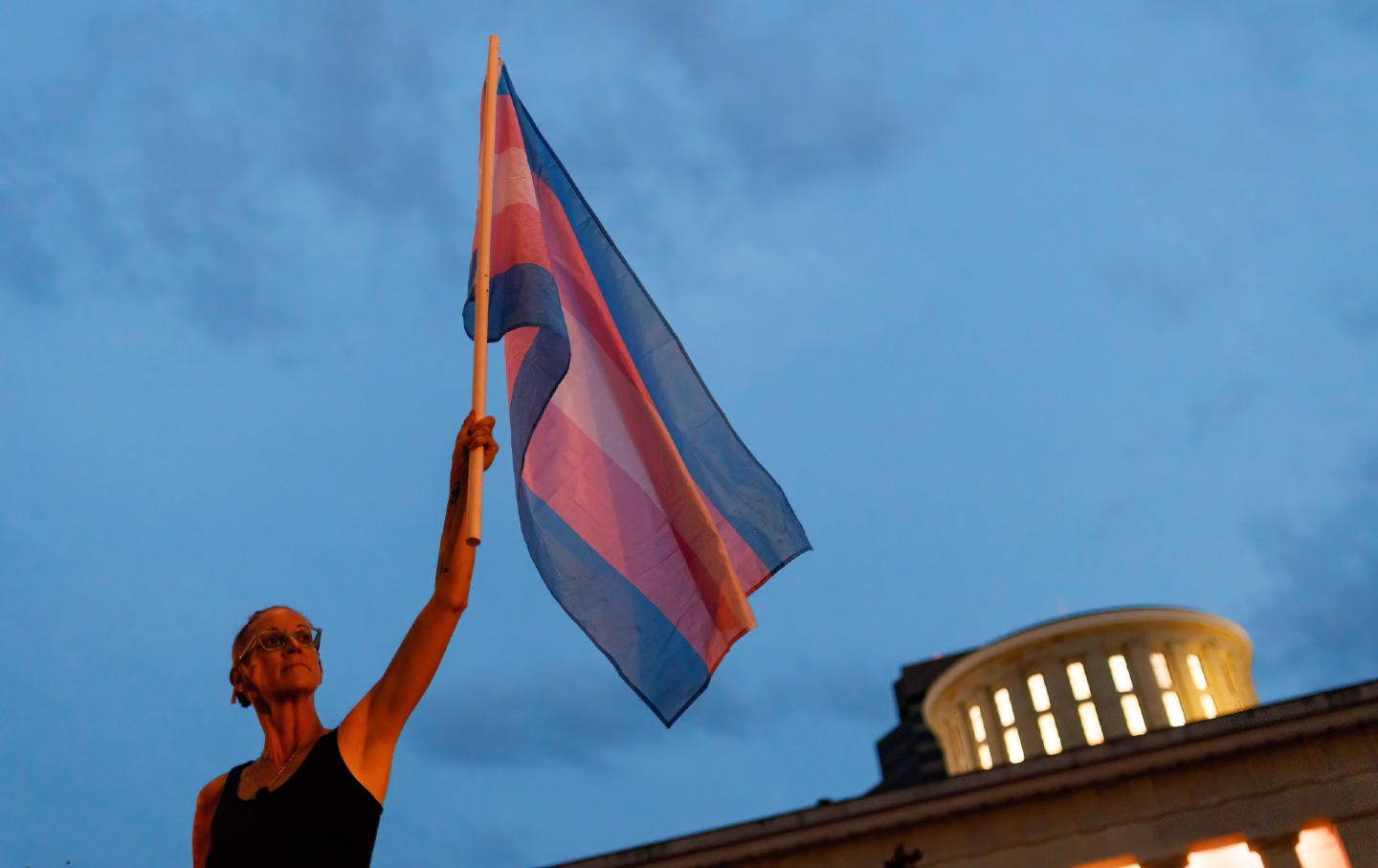
“I’m Terrified”: Trans-Feminine Athletes in Their Own Words “I’m Terrified”: Trans-Feminine Athletes in Their Own Words
In part two of a series, trans women athletes describe what it’s like to compete in the Trump era.
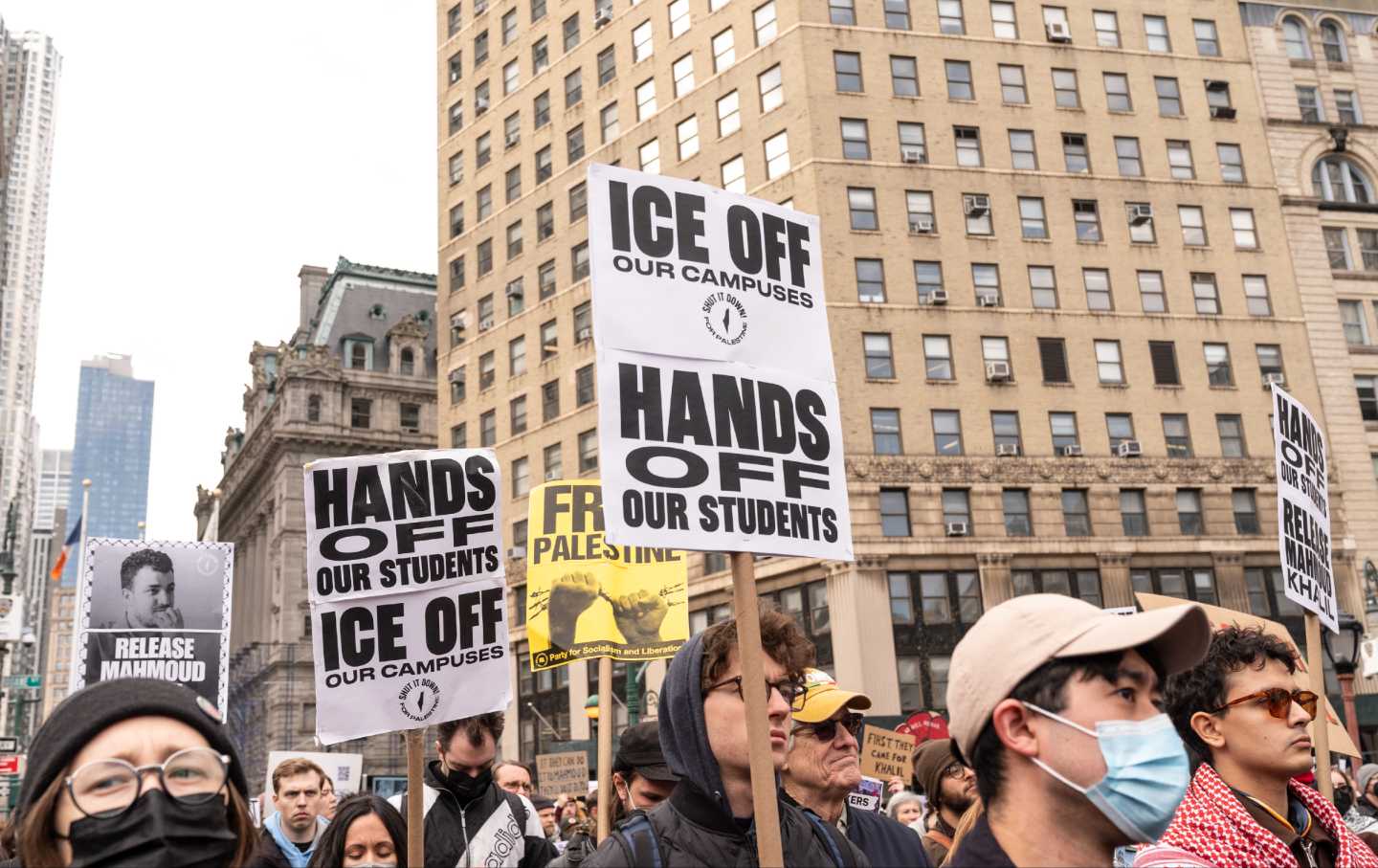
Columbia Is Betraying Its Students. We Must Change Course. Columbia Is Betraying Its Students. We Must Change Course.
The administration is choosing complicity over courage in the case of Mahmoud Khalil. It’s time for the faculty to demand a new path.

The Trans Cult Who Believes AI Will Either Save Us—or Kill Us All The Trans Cult Who Believes AI Will Either Save Us—or Kill Us All
What the Zizians, a trans vegan cult allegedly behind multiple murders, can teach us about radicalization and our tech-addled politics.
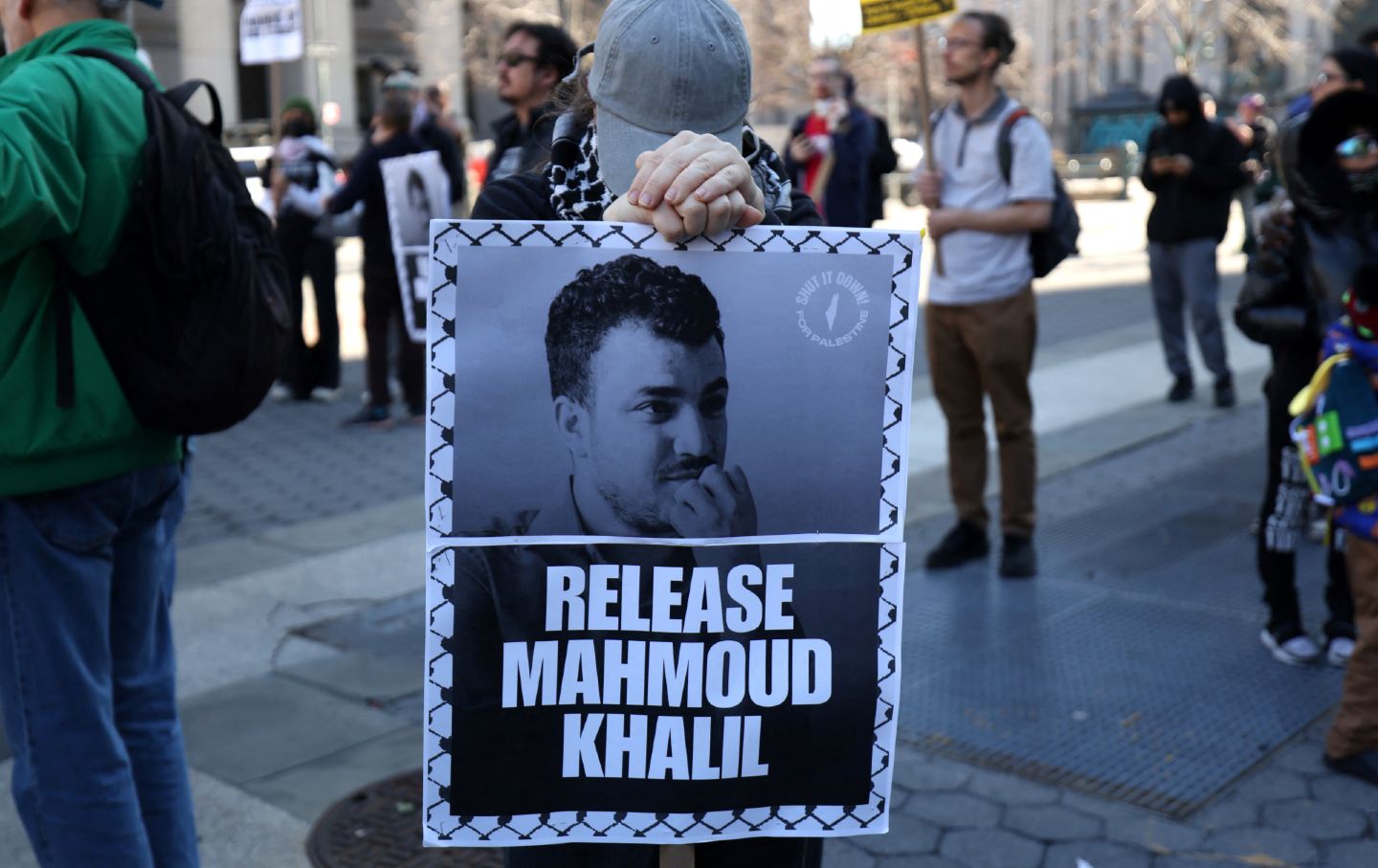
We Are Asking the Wrong Questions About Mahmoud Khalil’s Arrest We Are Asking the Wrong Questions About Mahmoud Khalil’s Arrest
The only relevant question is not “How can the government do this?” It is “How can we who oppose this fascist regime stop it?”
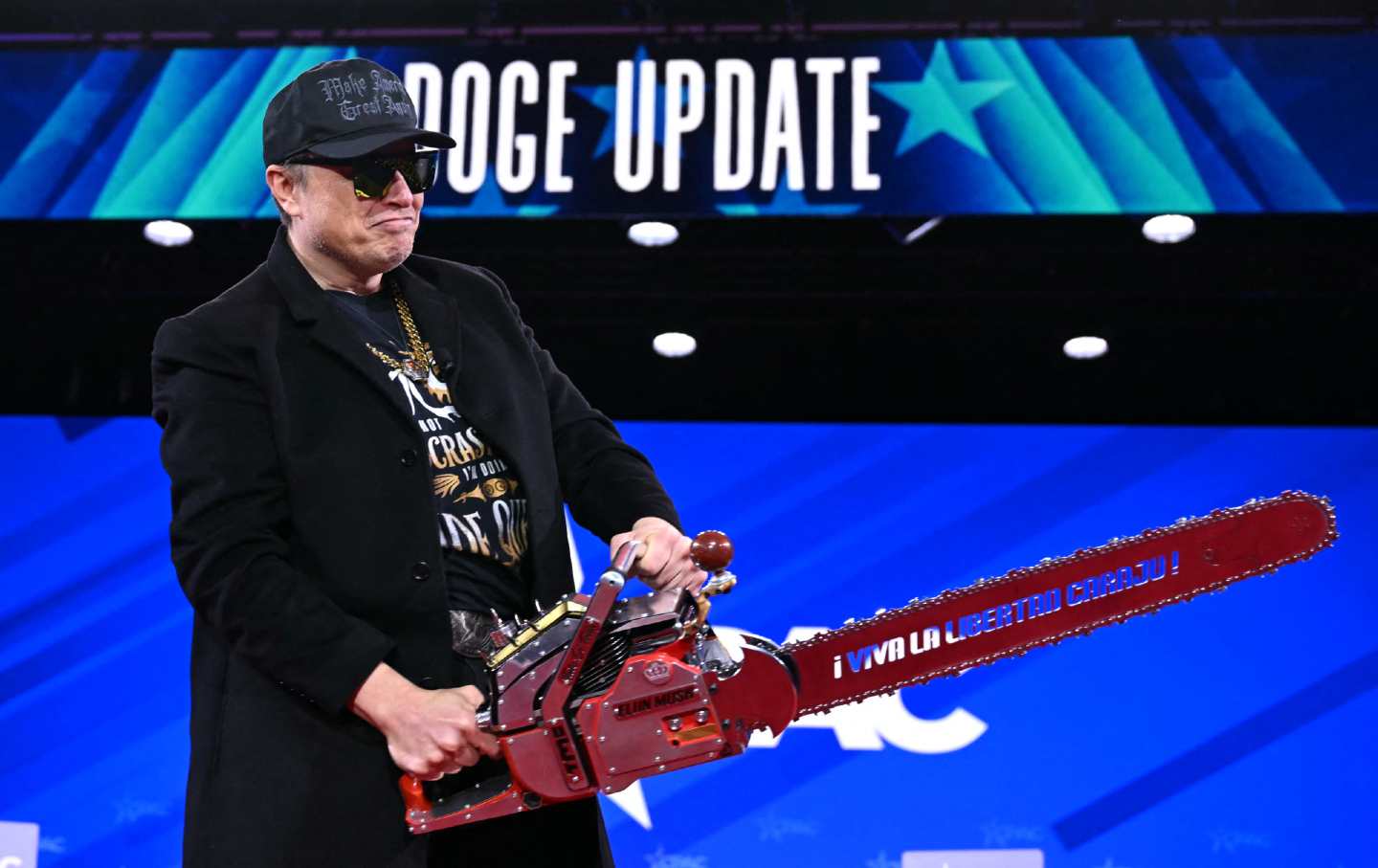
DOGE’s Private-Equity Playbook DOGE’s Private-Equity Playbook
Elon Musk's rampage through the government is a classic PE takeover, replete with bogus numbers and sociopathic executives.
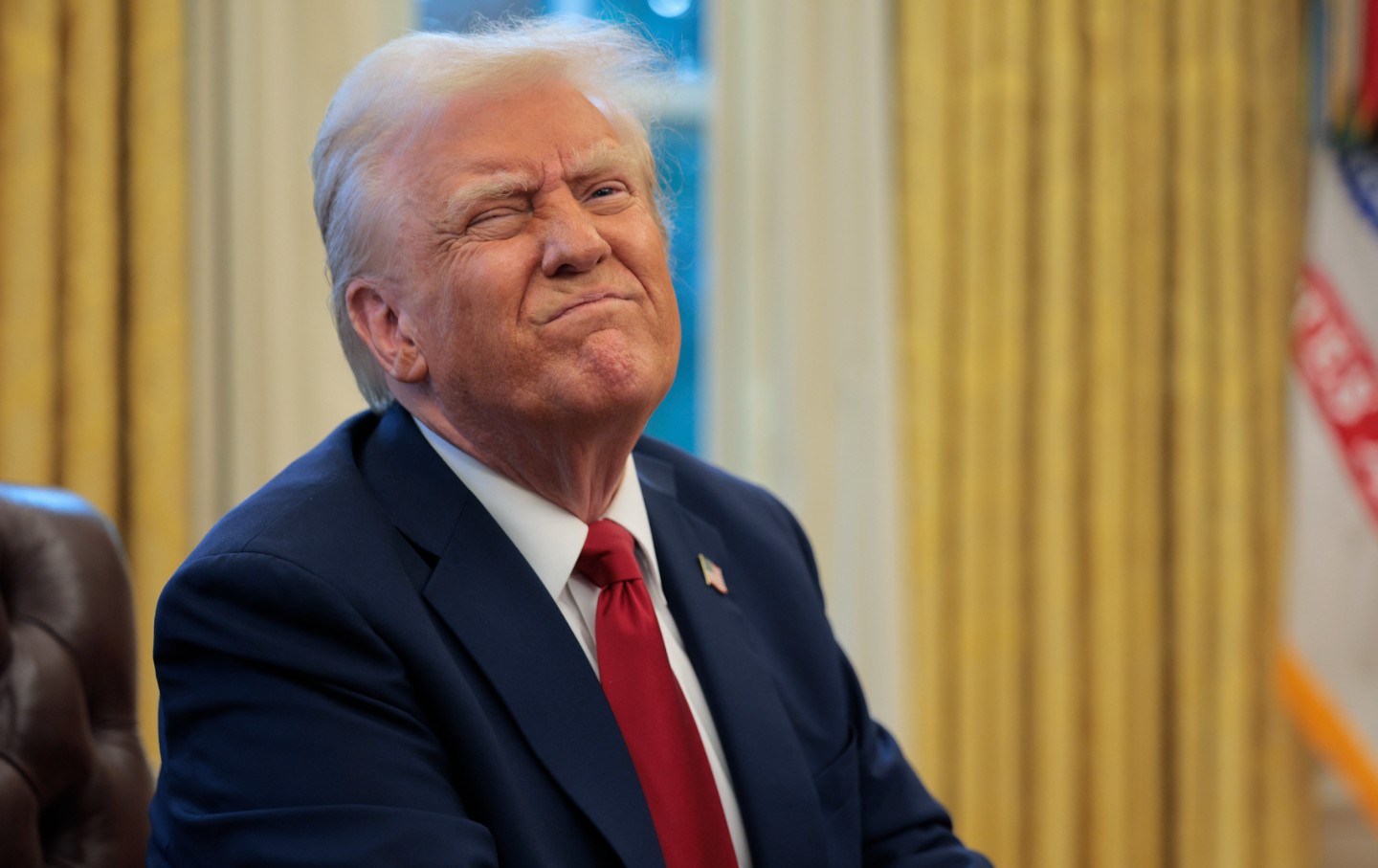
White Flops Rejoice! White Flops Rejoice!
DEI is being snuffed out in DC. Mediocre whiteness reigns. And we’re all going to suffer for it.


